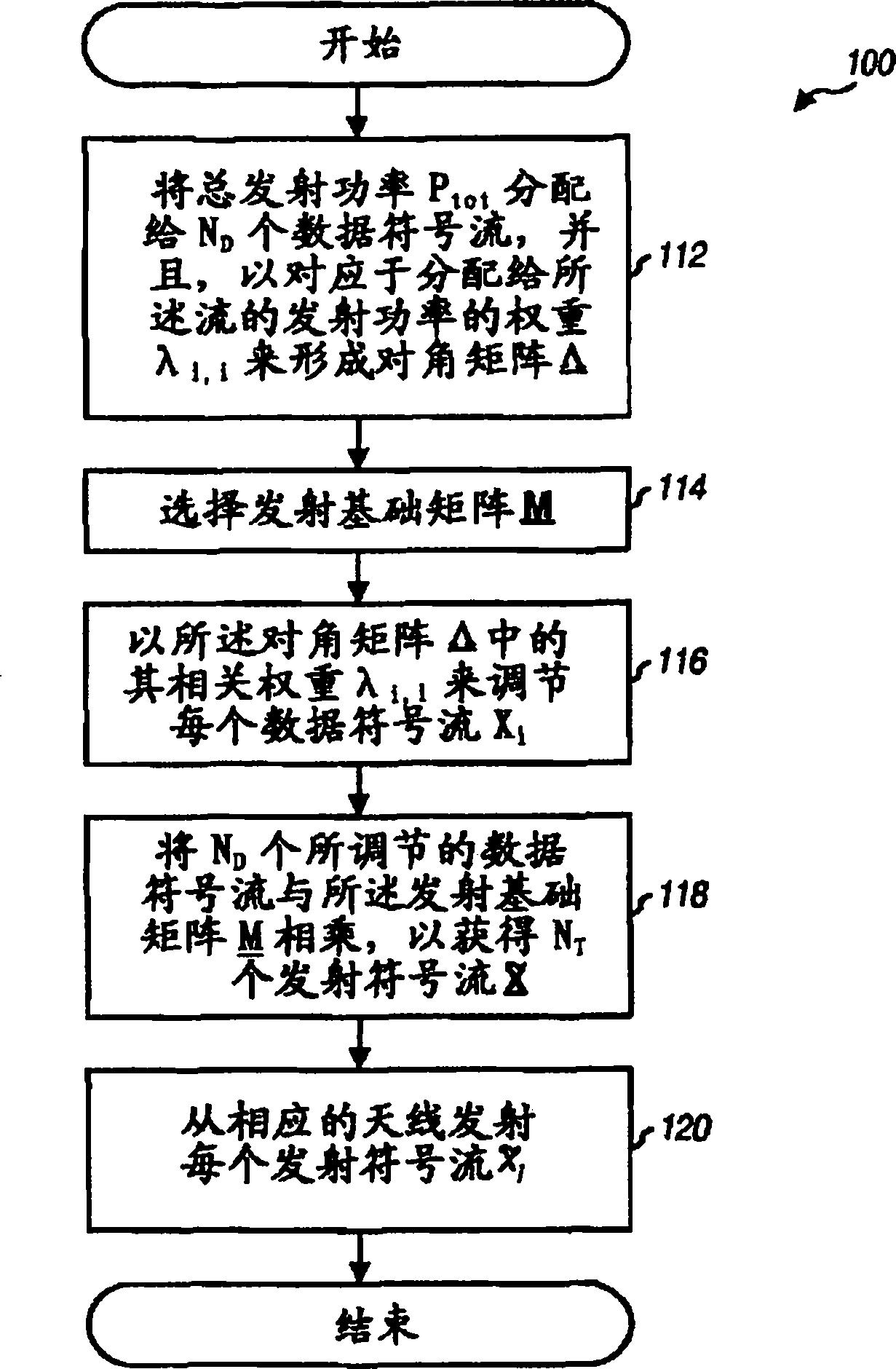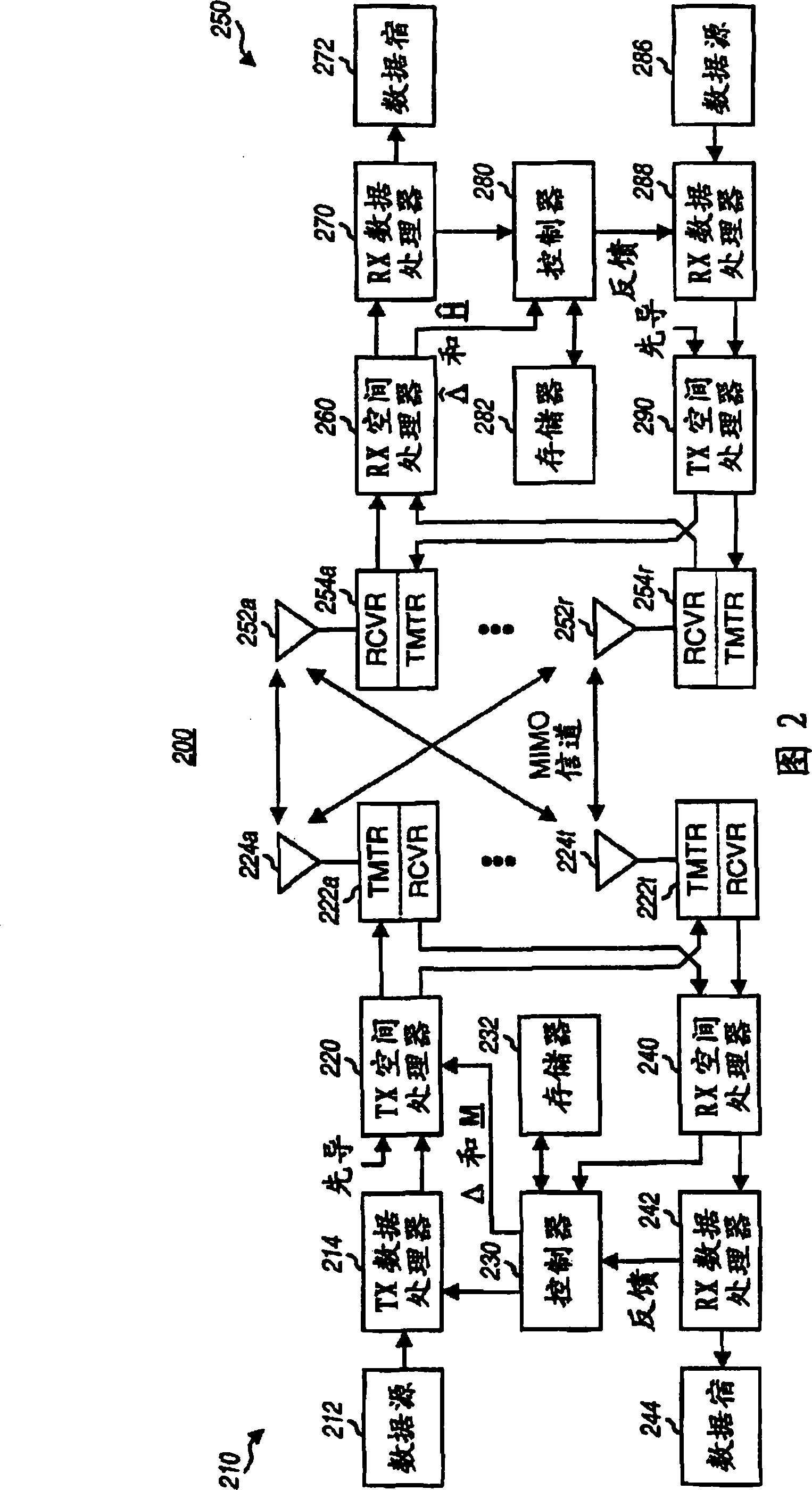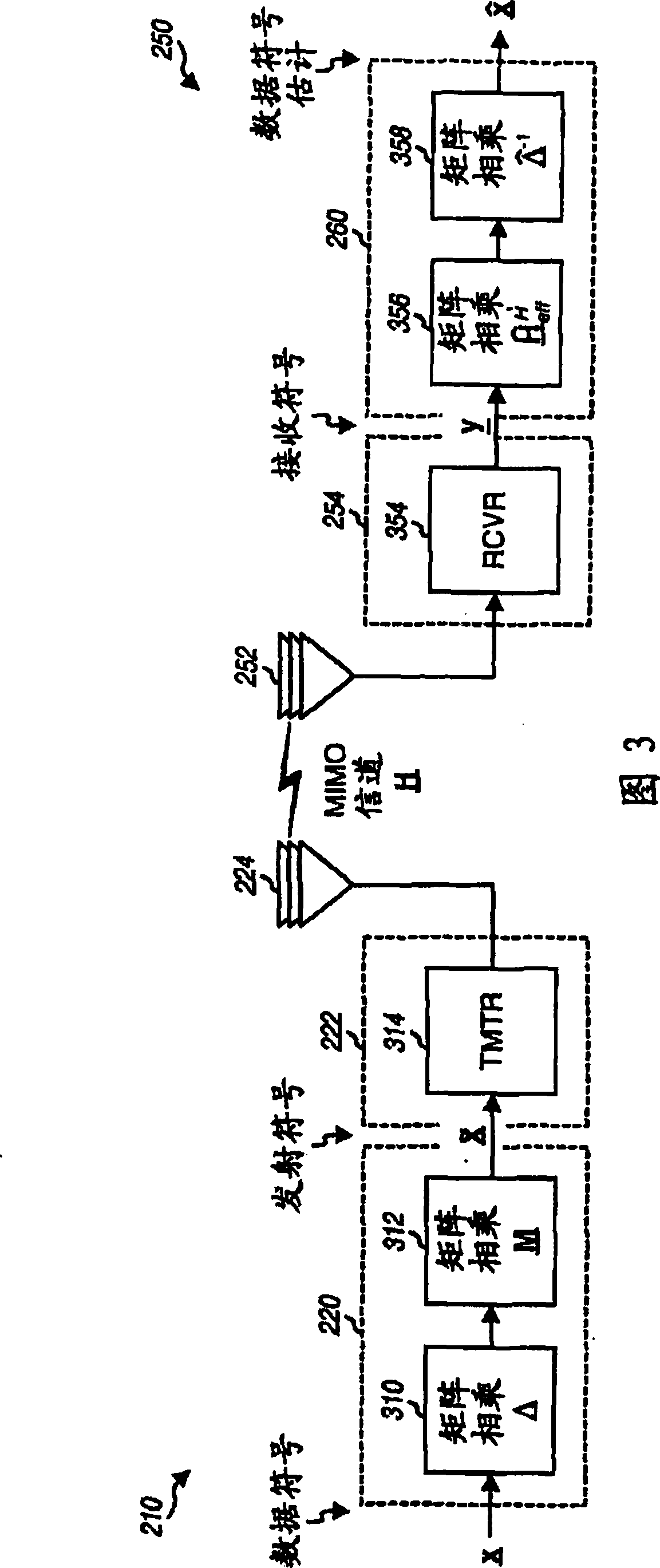Rate adaptive transmission scheme for MIMO systems
A speed and communication system technology, applied in the field of data communication, can solve problems such as increased complexity
- Summary
- Abstract
- Description
- Claims
- Application Information
AI Technical Summary
Problems solved by technology
Method used
Image
Examples
Embodiment Construction
[0018] A rate adaptive transmission scheme for MIMO systems is described here. For a multi-carrier MIMO system, the transmission scheme may be used for each of multiple carriers that may be used for data transmission. For clarity, the rate adaptive transmission scheme is described below with respect to a single carrier MIMO system.
[0019] For a single-carrier MIMO system, by N T transmit antennas and N R The MIMO channel formed by receiving antennas can be decomposed into N S independent channels, where N S ≤min{N T , N R}. The number of independent channels is determined by the number of eigenmodes used for the MIMO channel, which in turn depends on the channel response matrix H , the channel response matrix H N T transmit antennas and N R response between the receiving antennas. For simplicity, the following description assumes that: N T ≤N R , and the channel response matrix H is full rank (ie, N S =N T ≤N R ). Based on these assumptions, for each symbol...
PUM
 Login to View More
Login to View More Abstract
Description
Claims
Application Information
 Login to View More
Login to View More - R&D
- Intellectual Property
- Life Sciences
- Materials
- Tech Scout
- Unparalleled Data Quality
- Higher Quality Content
- 60% Fewer Hallucinations
Browse by: Latest US Patents, China's latest patents, Technical Efficacy Thesaurus, Application Domain, Technology Topic, Popular Technical Reports.
© 2025 PatSnap. All rights reserved.Legal|Privacy policy|Modern Slavery Act Transparency Statement|Sitemap|About US| Contact US: help@patsnap.com



